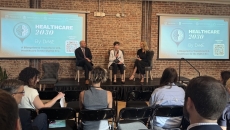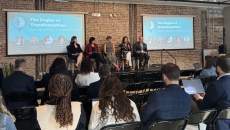Legislation
At Healthcare 2030, panelists highlighted successful programs at the VA and other government agencies that included integrating digital tools like remote monitoring and AI scribes.
At Healthcare 2030 in Washington, D.C., panelists highlighted debated challenges around interoperability, FHIR adoption and the need for industry-wide standards.
As tariffs target medical devices, plastics and packaging, ArcheHealth CEO Ralph Keiser says technologies that analyze pricing data can help hospitals build evidence for renegotiating contracts and increasing reimbursement.
Dr. Erik Langhoff, chief medical officer and consultant for the Bronx Regional Health Information Organization, discusses how the agency is addressing safety and efficacy in AI.
While shorter-term fixes like renegotiating payer contracts can help, Wipfli's Kelly Arduino recommends that hospitals heavily dependent on Medicaid rebuild community philanthropy and endowments.
Lee Kim, HIMSS senior principal of cybersecurity and privacy, spoke with MobiHealthNews about GPT-5 use in healthcare. She emphasized that patient safety and cybersecurity must remain top priorities for developers.
Nyxoah is in the midst of a lawsuit brought on by Inspire Medical Systems alleging infringement of several patents related to its recently-cleared offering, Genio.
The Conference Board's principal economic policy analyst PJ Tabit says that while the plan is helpful, it is not a comprehensive framework for how to regulate AI.
Data reveals that the people who are enrolling in Medicare Advantage have 50% more chronic conditions than people who are enrolling in Medicare fee-for-service, says Christie Teigland, Inovalon's VP of research science and advanced analytics.
The new law bans the use of AI for mental health and therapeutic decision-making, but states it can be used for administrative and supplementary support services.









